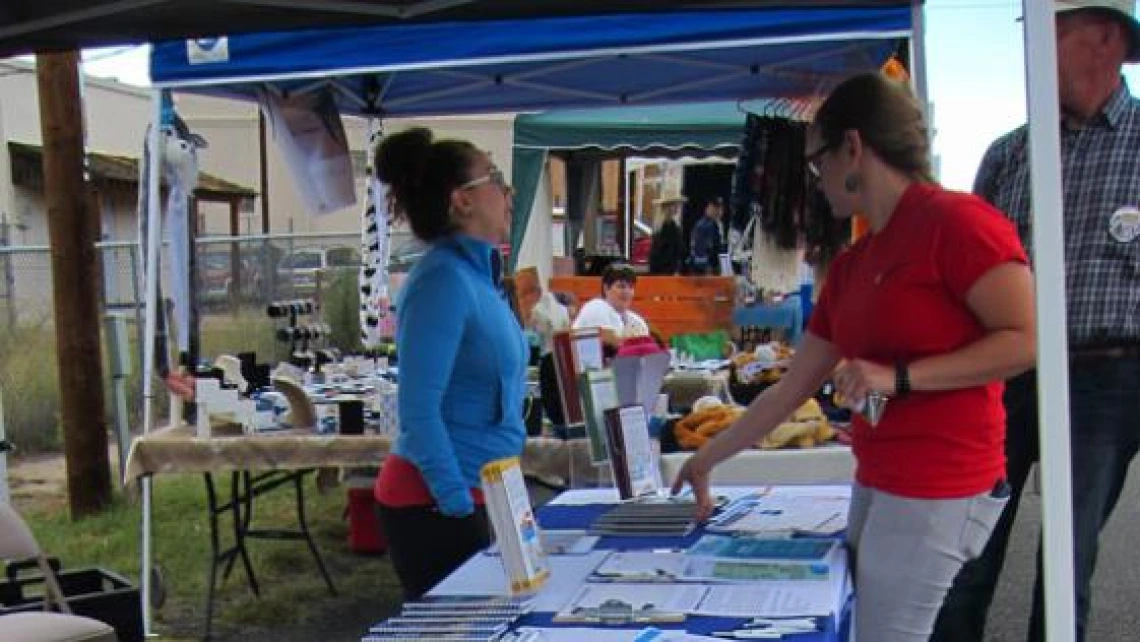Community Engagement and Research Translation Cores Attend Agua Fria Festival

 The University of Arizona Superfund Research Program (UA SRP) has been attending the Agua Fria Festival in the town of Dewey-Humboldt, Arizona since 2008. The festival's goal is to recognize the contributions of the Dewey-Humboldt community to historical events such as the Civil War and the Great Mining and Smelting Era. This year’s event was sponsored by the Dewey-Humboldt Historical Society and was staged at the original Main Street Historical site. Our UA SRP field site, the Iron King Mine and Humboldt Smelter Superfund site (IKMHSS), neighbors Dewey-Humboldt.
The University of Arizona Superfund Research Program (UA SRP) has been attending the Agua Fria Festival in the town of Dewey-Humboldt, Arizona since 2008. The festival's goal is to recognize the contributions of the Dewey-Humboldt community to historical events such as the Civil War and the Great Mining and Smelting Era. This year’s event was sponsored by the Dewey-Humboldt Historical Society and was staged at the original Main Street Historical site. Our UA SRP field site, the Iron King Mine and Humboldt Smelter Superfund site (IKMHSS), neighbors Dewey-Humboldt.
On October 1, 2016, Dr. Monica Ramírez-Andreotta (UA SRP Research Translation Core), Denise Moreno Ramírez (UA SRP Community Engagement Core), and Emalee Eisenhauer (UA SRP Trainee) participated in the Agua Fria festivities and hosted a UA SRP informational booth. Our booth provided community-oriented information to the public on regional contaminants of concern and recommended public health prevention/intervention strategies. Booth guests were also invited to sign up for the local community advisory board that is involved with the IKMHSS and for two UA SRP affiliated projects, the Arizona Superfund Oral History project and Gardenroots: A Citizen Science Garden Project, (gardenroots.arizona.edu) as well as for the Arizona Department of Health Services Biomonitoring project which tests for the presence of metals and phthalates in urine samples (http://azdhs.gov/preparedness/epidemiology-disease-control/environmental-toxicology/index.php#biomonitoring-home).
Festival participants, especially children and young adults were engaged through a water model demonstrating the interconnectedness of surface and groundwater and through the "Wheel of Environmental Science" game. “It was exciting to see the interest people had in our research and resources, across a wide range of the community,” said Eisenhauer. As always, the UA SRP team enjoyed interacting with community members and providing information about contamination in general and more specifically about our various on-going research projects that impact Dewey-Humboldt.

